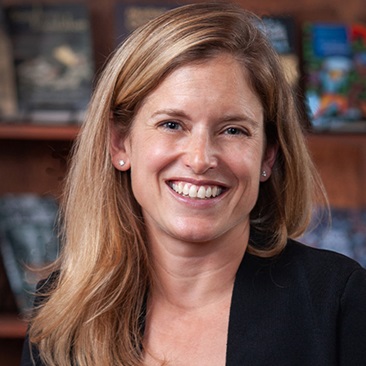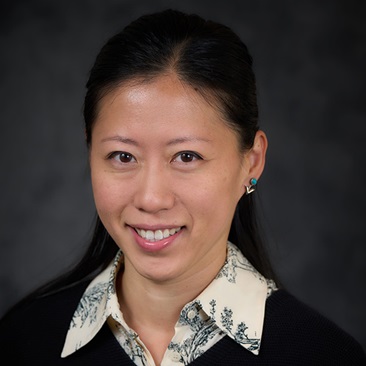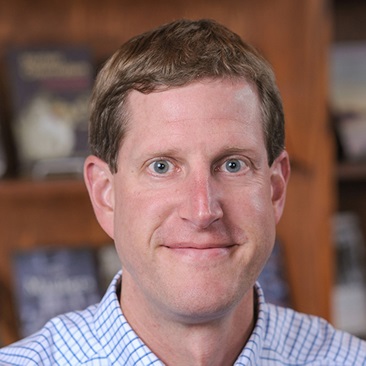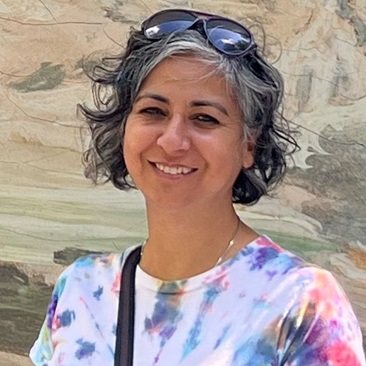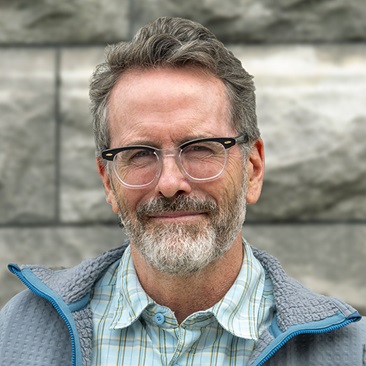Maxwell announces new faculty members, department chair
September 12, 2019
The academic year begins at the Maxwell School with the arrival of several new faculty members. In addition, Tom Perreault, professor of geography, is the new chair of the Department of Geography.
Perreault has been a member of the Maxwell faculty since 2000, having earned his doctorate in geography from the University of Colorado at Boulder that year. He is currently the DellPlain Professor of Latin American Geography and a Laura J. and L. Douglas Meredith Professor of Teaching Excellence.
Perreault’s research specialties include political ecology, environmental and resource governance, agrarian political economy and rural livelihoods, indigeneity and indigenous politics, and Latin America. He is author, editor, or co-editor of the books Water Justice (Cambridge University Press, 2018); The Handbook of Political Ecology (Routledge, 2015); Minería, Agua y Justicia Social en los Andes: Experiencias Comparativas de Perú y Bolivia (Centro Bartolomé de las Casas, PIEB/Plural, 2014); and Movilización política e identidad indígena en el Alto Napo (Ediciones Abya Yala, 2002). His research has appeared in The Journal Geographical Journal, Environment and Planning A, The Journal of Latin American and Caribbean Anthropology, and Water International, among others.
A dozen new faculty members are joining the Maxwell School during this academic year:
Mona Bhan, associate professor of anthropology and Ford-Maxwell Professor of South Asian Studies, focuses on political anthropology, environmental anthropology, militarization, occupation, counterinsurgency, war, environmentalism, infrastructure, water, and Kashmir. Bhan’s commitment to public anthropology is grounded in long-term ethnographic research on border wars; counterinsurgency; climate change; and space, power, and infrastructure. She has authored/co-authored three books — Counterinsurgency, Democracy, and The Politics of Identity in India: From Warfare to Welfare? (Routledge, 2013), Climate without Nature: A Critical Anthropology of the Anthropocene (co-authored with Andrew Bauer, Cambridge University Press, 2018), and Resisting Occupation in Kashmir (co-edited with Haley Duschinski, Ather Zia, and Cynthia Mahmood; University of Pennsylvania Press, 2018). She earned her PhD in anthropology from Rutgers University in 2006.
Erin Accampo Hern, assistant professor of political science, specializes in African politics, comparative politics and political behavior, and women and gender. Her research is based on field work in Zambia and examines structural influences on political participation, with a special focus on public policy and service provision. Hern is the author of Developing States, Shaping Citizenship: Service Delivery and Political Participation in Zambia (University of Michigan Press, 2019). In 2013, she won a Fulbright U.S. Student Award to carry out her doctoral research in Zambia. At Cornell University, she received the Houston I. Flournoy Fellowship and the Dean’s Prize for Distinguished Teaching. She has a PhD in political science from Cornell University (2015).
Johannes Himmelreich, assistant professor of public administration and international affairs, specializes in moral and political philosophy, philosophy of the social sciences, and applied ethics (especially regarding artificial intelligence). He enjoys exploring conceptual questions about human agency and moral responsibility, but also practical issues about the ethics of self-driving cars, the right to asylum, values in data science, and dilemmas of public policy. Himmelreich has recently published on “Responsibility for Killer Robots,” the trolley problem, and the ethics of self-driving cars, as well as on the role of embodiment in virtual reality. He has also spent time at Apple, working on the ethics of machine learning and autonomous systems. He earned his PhD in philosophy from the London School of Economics and Political Science in 2016.
Jenn M. Jackson, assistant professor of political science, researches black politics, with a focus on group threat, gender and sexuality, public opinion, political psychology, and behavior. Her first book project investigates the role of group threat in influencing black Americans’ political behavior. She has written for the Washington Post, Teen Vogue, The Root, Ebony, Marie Claire, Daily Dot, and The Independent, among others. She has also appeared on Al Jazeera, WGN, and Chicago Tonight to discuss issues of race and class inequity, police reform, and violence against young black people. She earned her PhD in political science from the University of Chicago in 2019.
Jok Madut Jok, professor of anthropology, specializes in security, governance, democracy, and development in South Sudan and Sudan. He has written extensively about gender, sexuality and reproductive health, humanitarian aid, ethnography of political violence, gender-based violence, and war and slavery and the politics of identity in South Sudan and Sudan. He is the author of Breaking Sudan: The Search for Peace (Oneworld Publications, 2017), Sudan: Race, Religion and Violence (One World Publication, 2007), War and Slavery in Sudan (University of Pennsylvania Press, 2001), and Militarization, Gender and Reproductive Health in South Sudan (Edwin Mellen Press, 1998). He has also co-edited The Sudan Handbook (James Currey, 2011). He received his PhD in anthropology from the University of California, Los Angeles in 1996.
Andrew Jonelis, assistant teaching professor of economics, specializes in macroeconomics, with a focus on how institutions shape economic growth. His other research interests include international economics, political economy, public finance, and Sub-Saharan African economies. His writings have been published in the South African Journal of Economics, and his work on the informal economy in sub-Saharan Africa has been referenced in The Economist and The Financial Times. At the University of Kentucky, he won the Excellence in Teaching award from the Economics Department. He has also worked as a research analyst with the International Monetary Fund, where he won the IMF African Departmental Award in 2013 and 2014. He earned his PhD in economics from the University of Kentucky in 2019.
Michael Lorenzo, assistant teaching professor of economics, specializes in open-economy macroeconomics, international trade, and international finance. His research focuses on the role of country size heterogeneity on macroeconomic interactions within the euro area. As a teacher, he strives to present economics to students as a toolkit for strategic decision-making, which can then be applied across multiple disciplines. He joins Maxwell from Wesleyan University, where he was a visiting professor of economics. He was the instructor of record at the University of Connecticut, and also worked for the Connecticut Center for Economic Analysis. He received his PhD in economics from the University of Connecticut in 2018.
Arnisson Andre Ortega, assistant professor of geography, is an interdisciplinary geographer and critical demographer specializing in community geography, urbanization, migration, Global South cities, counter-mapping, and critical demography. He is the author of Neoliberalizing Spaces in the Philippines: Suburbanization, Transnational Migration, and Dispossession (Lexington Books, Rowman & Littlefield Press, 2016), for which he won the Virginia Miralao Excellence in Research Award of the Philippine Social Science Council and the IPC 2018 Award for Best Global Research about the Philippines. He earned his PhD in geography from the University of Washington in 2012.
Dennis Rasmussen, professor of political science, specializes in political theory and the history of political thought. His research interests center on the Enlightenment and on the virtues and shortcomings of liberal democracy and market capitalism. His most recent book, The Infidel and the Professor: David Hume, Adam Smith, and the Friendship That Shaped Modern Thought (Princeton University Press, 2017) received a number of accolades. He is also the author of the books The Pragmatic Enlightenment: Recovering the Liberalism of Hume, Smith, Montesquieu, and Voltaire (Cambridge University Press, 2014) and The Problems and Promise of Commercial Society: Adam Smith’s Response to Rousseau (Pennsylvania State University Press, 2008). He earned his PhD in political science from Duke University in 2005.
Ying Shi, assistant professor of public administration and international affairs, is an applied microeconomist working broadly on issues of education policy. Her research investigates the causes and consequences of educational inequality, and evaluates policies’ effectiveness in bridging existing gaps. Her work has appeared in peer-reviewed publications such as the Proceedings of the National Academy of Sciences, Economics of Education Review, and Political Communication. Among her many achievements, she was nominated for the Dean’s Award for Excellence in Teaching at Duke University in 2015. She received her PhD in public policy from Duke University in 2017.
Emily Wiemers, associate professor of public administration and international affairs, is an economist specializing in the economics of aging, economic demography, and labor economics. She focuses her studies on changes over time in economic well-being and the role of the family and intergenerational ties in mitigating the effects of economic insecurity. She will conduct research at the Aging Studies Institute, a collaborative initiative of the Maxwell School and the Falk College of Sport and Human Dynamics. Her writings have been published in Demography, Population Development Review, The Gerontologist, and Review of Economics of the Household, among others. She earned her PhD in economics from the University of California, Los Angeles in 2009.
Maria Zhu, assistant professor of economics, researches labor economics, applied microeconomics, and the economics of education. She has worked on projects looking at affirmative action, social networks in the labor market, and instructor quality in higher education. Currently, she’s working on a project on coworker networks. Her writings have been published in the Annual Review of Economics. Among her many accolades, she won the Best Poster Award at the Society of Labor Economists Conference in 2017, earned an Education and Human Development Scholars Fellowship, was named to the Duke Social Science Research Institute (2015–17), and received the James B. Duke Fellowship, Duke University, 2013–17. She received her PhD in economics from Duke University in 2019.
09/12/19
Related News
School News
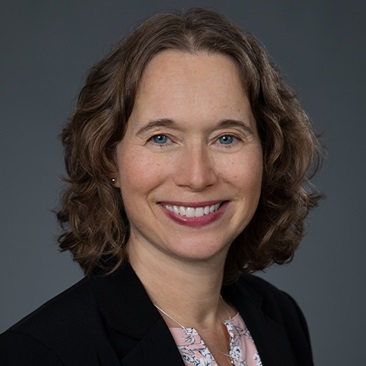
Nov 8, 2024
School News

Oct 28, 2024
School News

Sep 23, 2024
School News
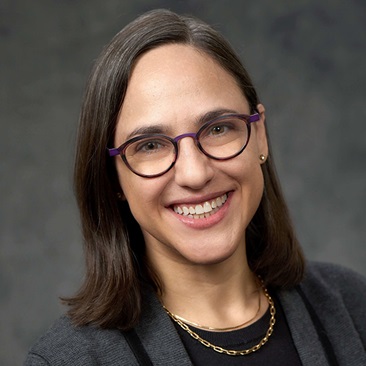
Sep 12, 2024

